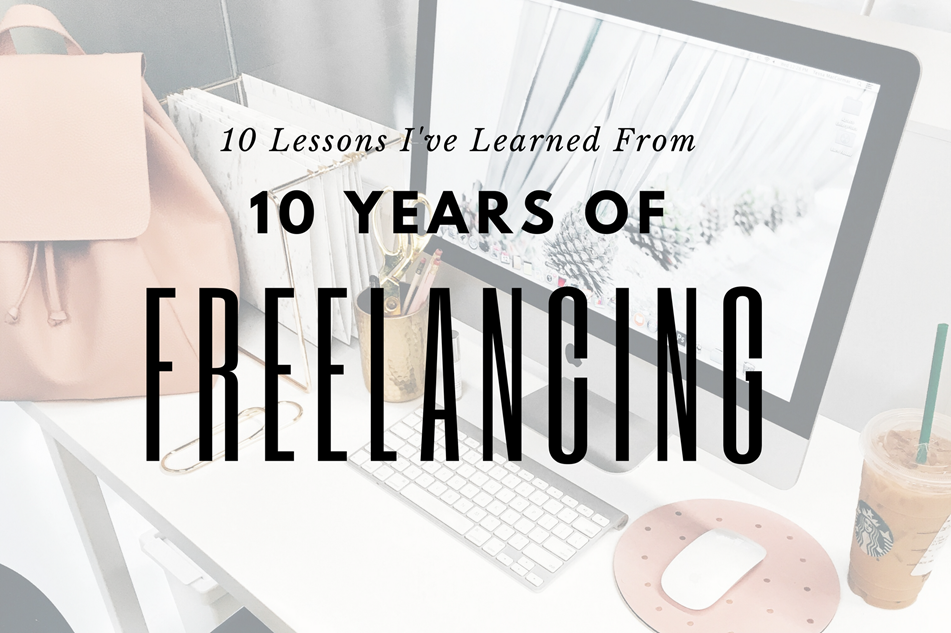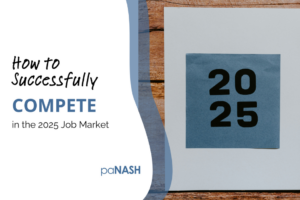|
|
Last week I posted an announcement about the celebration of paNASH’s 10-year anniversary. In it I told how I started my freelance business, the fears I faced in leaving a secure job to go out on my own, and how my business’s mission has evolved.
Today, I want to share some of the freelance lessons I’ve learned over those ten years in working for myself. I hope they will serve as an encouragement to those who are thinking about starting their own thing, are new to the freelancing world, or have been in it long enough to have faced some common struggles.
Freelance Lesson #1
I had to be disciplined. Being your own boss requires A LOT of discipline. Why? Because there’s no one looking over your shoulder to make sure you’re showing up on time or getting your work done. Discipline has always come naturally to me, and I was raised by a former Marine Corps officer who further instilled this trait in me. This is not to say that discipline can’t be learned later in life. But the discipline required to work for yourself will make things easier if you’ve already mastered it through other methods such as playing a sport, sticking with a commitment, etc.
Freelance Lesson #2
I had to use my love for life-long learning. I’ve always loved learning new things. And I realized the need for constant learning when starting a business because “a skill does not a business make” according to my friend and colleague Melody Bowers, co-owner of VirtualCollective.
You need to either already have some business sense, or be disciplined enough (see lesson #1) and have the ability to learn it as you go while managing your other responsibilities. If there’s something you can’t learn, there’s always someone else who has the knowledge you can pay to either teach you or to do it for you.
Freelance Lesson #3
I learned it was normal to question my decision almost every single day. I also realized it was normal to feel like giving up on a regular basis when things got hard. But, once I began working in a way that was true and authentic to my own personal mission in life, those doubts and insecurities started to diminish. I became okay with the discomfort of a process that isn’t linear. Instead, it looks more like this:
Entrepreneur Darius Foroux further explains the figure above in his encouraging article Don’t Quit When It Gets Hard. I love it when he says, “If you never feel like quitting, that means life is too easy and you need to take action in your life.”
Freelance Lesson #4
I learned I had the ability to figure out the logistics. It turns out the things that seem intimidating at first (i.e. getting a business license, paying for your own health insurance, tracking your income & expenses/P&L, etc.) aren’t really all that scary. In fact, a lot of this not-so-fun part of having your own business is easier than you think.
And Freelancers Union has made a lot of it very simple. They provide tips and resources on the logistics of running your own freelance operation and even provide access to affordable insurance.
Freelance Lesson #5
I learned what I’m worth. The toughest thing for me was figuring out my pricing. At first it was hard to know how much to charge. And even when I thought I knew, I then had to figure out which pricing model worked best. An hourly rate? A day rate? A package or retainer rate?
Like most people first starting out, in the beginning I was devaluing my skills and expertise. But, after I started getting clients and began listening to their feedback on the services they received, I started to better understand my worth.
Yes, it helps to look at your competition and the average rate others charge for the same service or product to get an idea of what you should charge. But, what helped me most was asking current and past clients if they would’ve paid more based on the value they’d already received. To my surprise, most of them said yes, and even some told me flat out I was undercharging.
Now, most people (both potential and current clients) say my pricing is reasonable and fair. It took some tweaking and trial and error, but now my pricing structure is in harmony with the service I’m providing.
Freelance Lesson #6
I learned when to say no. This included being selective of potential clients, turning down certain speaking gigs/presentation requests, not wasting my time with potential contacts who only wanted to talk about themselves but never wanted to listen or make the relationship mutually beneficial, discontinuing professional relationships when trust had been broken, etc.
This is difficult to do when first starting out. Especially when it comes to turning away money. But, I can tell you the times I listened to my gut and turned away the opportunities that weren’t the right fit for my business, I was always glad I did. The times I didn’t listen to my gut, I always regretted it.
Freelance Lesson #7
I learned not to compare myself with others. My pastor’s wife always says, “Comparing yourself to others makes you either small or smug, and neither of those are good.” I realized because I do what I do in my own unique way, comparing myself to my competition is a waste of time because it’s like comparing apples to oranges.
The same is true for you because you also have your own unique way of delivering your service or product that no one else can duplicate. Instead of comparing, focus on what makes you and your brand solely yours. This is what becomes your selling point!
Freelance Lesson #8
I learned (and am still learning) when it’s time to shift gears. When learning to drive a stick, you start to develop a feel for when it’s time to shift gears. This doesn’t mean you won’t grind your gears on occasion.
The same is true in running a business or working as a freelancer. You’ll start to learn when to give something a little more time to grow before uprooting it. When to pull the plug on what’s not working. And when to simplify if you’re trying to do too much or be too many things.
This type of self-awareness can mean the difference between success and failure.
Freelance Lesson #9
I realized the real risk. At first I thought the obvious risk of starting my own thing was leaving the security of a full-time job with benefits. I was wrong! Since leaving my job at a prestigious university where there were constant hiring freezes and multiple firings, I’ve had more job security than ever before.
I’ve been able to develop the grit and skills required to work for myself and bring in a steady stream of clients, to supplement my income at times when the stream was unsteady, and to eliminate the salary cap I had at my previous job.
The only real risk I faced was potentially losing any or all desire to work for someone else again. Let’s face it. It’s pretty hard to go back to working for someone else after having worked for yourself. But if I ever had to again, I’d be very selective in who I worked for (see Lesson #6).
Freelance Lesson #10
I learned fear is inevitable. Fear is not a reason to not venture out on your own if it’s what you truly desire. Instead, it’s often an excuse. Everyone who’s ever done this has had some level of fear.
Do your research. Prepare (but don’t wait until you feel fully prepared because that will never happen!). Then push through the fear.
Related Posts
Save
Save
Save
Save
Save
Save
Save
Save
Save
Save
Save






